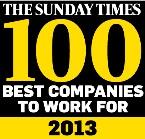Powerpoint presentation



Doctors or Managers –
Who has the solutions for workplace wellbeing?
IOSH : Wellbeing – That Works!
23 September 2015
Dr Adrian Massey MRCP FFOM

Doctors or Managers?


Doctors or Managers?


Doctors or Managers?
Doctors or Managers?
The temptation to medicalize life
The dangers of medicalizing life
Why it is becoming harder to hold the line
The potential of people
The temptation to medicalize life
Tempting to see health as a commodity we buy rather than something we do
Perhaps this is because it is –
• Easier to take a pill than take
responsibility for lifestyle changes
• Lack of health can then be politicised –
it implies social/economic injustice rather than personal fallibility
• Easier subject matter for a wellbeing
The temptation to medicalize life
We are increasingly treating life as a medical problem -
The dangers of medicalizing life
Medicine can be dangerous! (pharmakon)
Misdiagnosis, missed diagnosis, treatment errors and side-effects are
inevitable because clinicians, as humans, are fallible
When an illness is diagnosed where no illness exists, any level of
treatment risk is unacceptable
When life is made a medical problem there is an opportunity cost to
society as enormous resources are directed to fashionable illnesses
People like easy solutions that don't require effort…
People like easy solutions that don't require effort…
But these solutions can be dangerous….
People like easy solutions that don't require effort…
But these solutions can be dangerous….
…this puts an important social duty on doctors
to curtail the aspirations of their franchise.
The dangers of medicalizing life
• A 19 year old lady attends her GP very distressed having found out
her first long-term boyfriend has been having an affair. 7 minutes is allotted for the appointment. She is told she is depressed, prescribed citalopram and asked to come back in a month…
• A 27 year old production manager has fallen out with his new area
manager over time-sheets and has become tearful, anxious, has stopped sleeping and going out. His GP tells him he is depressed, prescribes citalopram (!), commiserates with him about his treatment at the hands of his employer, signs him off for 2 months and writes to the employer to say they must not contact his patient…
The dangers of medicalizing life
What kinds of medical harm arise in situations of this kind?
Disempowerment
Dependence
Alienation
Distraction from practical interventions to a circumstantial problem
Side-effects of unnecessary treatment
"The first duty of the physician is to educate
the masses not to take medicine."
Sir William Osler
(1849 – 1919)
Why it is becoming harder to hold the line
Medicalization facilitated in modern times by –
Move from a disease model to an illness model
Increasingly unrealistic expectations of human life
IT and social networking (normalising irrational, unscientific beliefs)
Democratization of opinion in modern times (the ‘Balance Fallacy')
Reduced deference to professionals (post-Shipman)
These have undermined the physician in their socially important role of
normalising rather than pathologizing the experiences of their patients
Why it is becoming harder to hold the line
That is not to say that medicine is never good
But the study of interventions in illness models is necessarily less objective
than for disease models and must be interpreted with scepticism
Why it is becoming harder to hold the line
That is not to say that medicine is never good
But the study of interventions in illness models is necessarily less objective
than for disease models and must be interpreted with scepticism
This includes consideration of the vested interests of those offering to sell
the ‘solution'!
My butcher says – "Eat More Sausages!!"
The potential of people
The observable evidence is that as a species, throughout human
history, we are very resilient
When problems are presented in a human context people feel able to
apply a wide range of human qualities –
Philosophical
Religious/spiritual
We should not underestimate the power of social/cultural factors as
means of helping people to cope with, and make sense of, the existential challenges of their life
The potential of people
"Medicalisation constitutes a prolific bureaucratic programme based on the denial of each man's need to deal with pain, sickness and death."
(Extract from ‘Limits to Medicine', Ivan Illich)
The potential of people
Medical interventions have a declining marginal utility
There is an opportunity cost to excessively medicalised wellbeing solutions
Organisations have less time and less money for other activities that are
actually more useful –
Having time for one another
Embodying a culture of interest and care rather than ‘outsourcing' these
Building mutually supportive teams and networks
Improving the physical environment, pay & rations, social activities
Investing in training to improve manager skills
The potential of people
What is ‘good' management?
The potential of people
What is ‘good' management?
Why would you ask a doctor?
The potential of people
What is ‘good' management?
Why would you ask a doctor?
….perhaps because we are regularly spectators to the consequences of ‘bad' management and may have some useful observations to make?
Expectations for role, consequences of underperformance: the existence of a contract!
Resisting the temptation to make promises that can't be cashed
Say what you mean and mean what you say
Whether the employee's expectations are realistic or not, you can't hope to manage
them if you don't know what they are
Demonstration of care
Time, verbal/non-verbal communication, actions
The potential of people
There is no evidence that people who are vulnerable to mental health
problems, or who have a mental health problem, need a fundamentally different kind of management to anyone else
But they are less resilient to poorer management
There is little evidence of effectiveness for workplace medical
interventions intended to reduce the risk of people developing MHPs
It is intuitive that how well people fare in work depends heavily on the
quality of their line manager interactions
There are evidence-based medical treatments for people who have
developed clinically-recognised MHPs
Managers should not under-estimate how important their own
interactions with employees are as a means of helping them to keep well and helping them to recover if they have become unwell
Well-meaning (or avaricious) doctors and HCPs should leave well
Source: https://www.iosh.co.uk/~/media/Documents/Networks/Group/Communications%20and%20Media/Past%20events/Dr%20Adrian%20Massey%20%20Creating%20a%20link%20between%20good%20management%20and%20wellbeing.pdf
Effect of tetracycline residues in pig manure slurry on tetracycline-resistant bacteriaand resistance gene tet(M) in soil microcosmsAgersø, Yvonne; Wulf, Gitte; Bräuner, Elvira; Halling-Sørensen, Bent; Jensen, Lars Published in:Environment International Document VersionEarly version, also known as pre-print Citation for published version (APA):Agersø, Y., Wulf, G., Bräuner, E., Halling-Sørensen, B., & Jensen, L. (2006). Effect of tetracycline residues inpig manure slurry on tetracycline-resistant bacteria and resistance gene tet(M) in soil microcosms. EnvironmentInternational, 32, 876-882.
Development Bank December 9 – 10, 2004 "Una Aproximación al Enfoque de Derechos en las Estrategias y Políticas de Desarrollo de América Latina" Víctor Abramovich CELS (Centro de Estudios Legales y Sociales, Argentina) Documento preparado para: "Derechos y Desarrollo en América Latina: Una Reunión de Trabajo" Santiago, Chile Diciembre 9 y 10 del 2004








